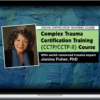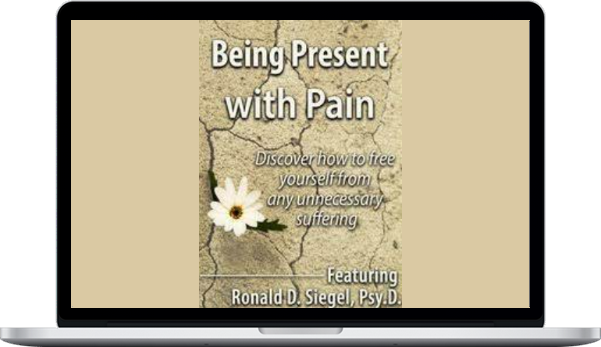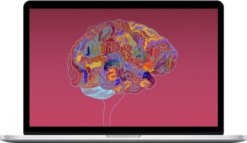Ronald Siegel – Being Present with Pain
$59.99 $12.00
»Delivery: Within 1 – 7 days
Description
Ronald Siegel – Being Present with Pain
Description of Being Present with Pain
As long as we’re alive, we experience pain. Unfortunately, many of our hard-wired responses to both physical and emotional pain multiply our miseries, trapping us in viscous cycles of suffering. This class will focus on ways to be present with pain that interrupt these cycles, freeing us from unnecessary suffering. Therapeutic presence arises from a clinician and clients’ increased willingness to relate to pain with flexibility versus control and avoidance.
What you’ll learn in Being Present with Pain
Objectives
- Evaluate the neurobiological effects of mindfulness practice on experimentally induced pain
- Present cognitive, affective, and behavioral components of chronic pain cycles
- Specify how mindfulness practice can help to interrupt chronic pain cycles
Outline
- Neurobiological effects of mindfulness practice on experimentally induced pain
- Cognitive, affective, and behavioral components
- Presence arising from teaching oneself and clients to flexibly relate to pain
- Interrupt chronic pain cycles
Who is Being Present with Pain for
Counselors, Social Workers, Psychologists, Case Managers, Addiction Counselors, Therapists, Marriage & Family Therapists, Nurses, Other Mental Health Professionals
About Ronald Siegel

Ronald D. Siegel, PsyD, has spent over 35 years as a part-time assistant professor of psychology at Harvard Medical School. A long-time student of mindfulness meditation, he serves on the Board of Directors and faculty of the Institute for Meditation and Psychotherapy. He also teaches internationally about mind-body medicine and the application of mindfulness and compassion practices in psychotherapy, psychopharmacology, and other fields.
Dr. Siegel has edited and written several books, including the critically acclaimed professional text, Mindfulness and Psychotherapy, 2nd Edition, a comprehensive guide for general audiences. He also authored several professional guides: The Mindfulness Solution: Everyday Practices for Everyday Problems, Sitting Together: Essential Skills for Mindfulness-Based Psychotherapy and Wisdom and Compassion in Psychotherapy. His step-by-step self-treatment guide, Back Sense, integrates mindfulness practice, aggressive rehabilitation, and mind-body approaches to treat chronic back and neck pain.
Speaker Disclosures:
Financial: Ronald Siegel maintains a private practice and has employment relationships with Harvard Medical School and the Institute for Meditation and Psychotherapy. He receives royalties as a published author. Ronald Siegel receives a speaking honorarium and recording royalties from Psychotherapy Networker and PESI, Inc. He has no relevant financial relationships with ineligible organizations.
Non-financial: Ronald Siegel is a member of the American Psychological Association. He is an author for Psychotherapy Networker.
More courses from the same author: Ronald Siegel
Delivery Policy
When will I receive my course?
You will receive a link to download your course immediately or within 1 to 21 days. It depends on the product you buy, so please read the short description of the product carefully before making a purchase.
How is my course delivered?
We share courses through Google Drive, so once your order is complete, you'll receive an invitation to view the course in your email.
To avoid any delay in delivery, please provide a Google mail and enter your email address correctly in the Checkout Page.
In case you submit a wrong email address, please contact us to resend the course to the correct email.
How do I check status of my order?
Please log in to HealingCourse account then go to Order Page. You will find all your orders includes number, date, status and total price.
If the status is Processing: Your course is being uploaded. Please be patient and wait for us to complete your order. If your order has multiple courses and one of them has not been updated with the download link, the status of the order is also Processing.
If the status is Completed: Your course is ready for immediate download. Click "VIEW" to view details and download the course.
Where can I find my course?
Once your order is complete, a link to download the course will automatically be sent to your email.
You can also get the download link by logging into your HealingCourse account then going to Downloads Page.
Related products
Total sold: 2
Total sold: 3
Total sold: 2











